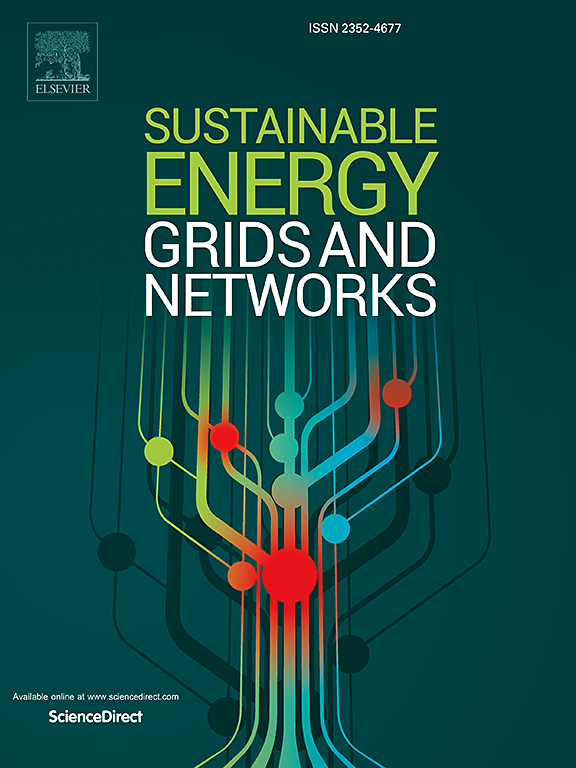A two-stage online inertia estimation: Identification of primary frequency control parameters and regression-based inertia tracking
IF 4.8
2区 工程技术
Q2 ENERGY & FUELS
引用次数: 0
Abstract
In recent years, power system inertia has significantly decreased and has become more variable due to the massive integration of converter-interfaced renewable energy sources. Real-time awareness of the inertia present in the system is essential for operators to take preventive actions and mitigate potential instability risks. Online inertia tracking methods based on field data have been used to accomplish this task. However, most existing methods are disturbance-based and few have proven effective under normal operating conditions. In addition, some methods require prior knowledge of the primary frequency control dynamics, which are usually unknown, especially in presence of power converters. To overcome these limitations, this paper proposes a two-stage online inertia estimation method. The first stage estimates the primary frequency control parameters. The second stage uses a regression-based approach to track the inertia in real time. A sensitivity analysis of the parameters of the regression model is used to determine the conditions under which the primary frequency control parameters must be updated. The performance of the method is validated using the IEEE 39-bus benchmark network under normal operating conditions and under the occurrence of large disturbances. The algorithm is also tested in the presence of converter-interfaced sources controlled in both grid-following and grid-forming modes. Real-time tests validate the applicability of the method.
两阶段在线惯性估计:主频率控制参数的识别和基于回归的惯性跟踪
近年来,由于大规模集成了变流器界面的可再生能源,电力系统的惯性大大降低,变得更加多变。实时了解系统中存在的惯性对于操作人员采取预防措施和降低潜在的不稳定风险至关重要。基于现场数据的在线惯性跟踪方法已被用于完成这一任务。然而,大多数现有方法都是基于干扰的,很少有方法能在正常运行条件下证明有效。此外,有些方法需要事先了解一次频率控制动态,而这通常是未知的,尤其是在有功率转换器的情况下。为了克服这些局限性,本文提出了一种两阶段在线惯性估算方法。第一阶段估算一次频率控制参数。第二阶段使用基于回归的方法实时跟踪惯性。通过对回归模型参数的灵敏度分析,确定必须更新主频率控制参数的条件。利用 IEEE 39 总线基准网络,在正常运行条件下和发生大扰动时验证了该方法的性能。该算法还在变流器界面源以电网跟随和电网形成两种模式控制的情况下进行了测试。实时测试验证了该方法的适用性。
本文章由计算机程序翻译,如有差异,请以英文原文为准。
求助全文
约1分钟内获得全文
求助全文
来源期刊

Sustainable Energy Grids & Networks
Energy-Energy Engineering and Power Technology
CiteScore
7.90
自引率
13.00%
发文量
206
审稿时长
49 days
期刊介绍:
Sustainable Energy, Grids and Networks (SEGAN)is an international peer-reviewed publication for theoretical and applied research dealing with energy, information grids and power networks, including smart grids from super to micro grid scales. SEGAN welcomes papers describing fundamental advances in mathematical, statistical or computational methods with application to power and energy systems, as well as papers on applications, computation and modeling in the areas of electrical and energy systems with coupled information and communication technologies.
 求助内容:
求助内容: 应助结果提醒方式:
应助结果提醒方式:


